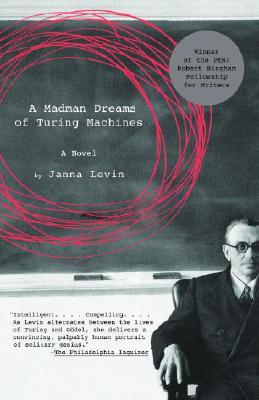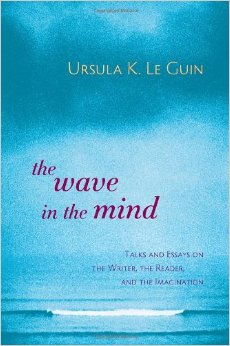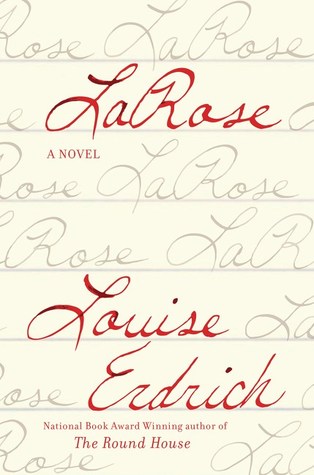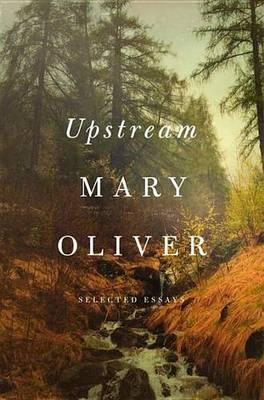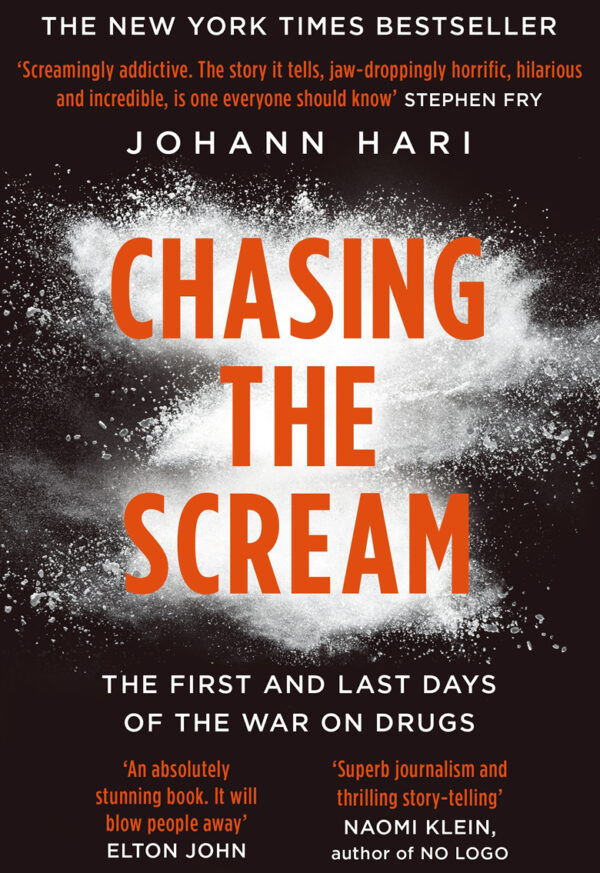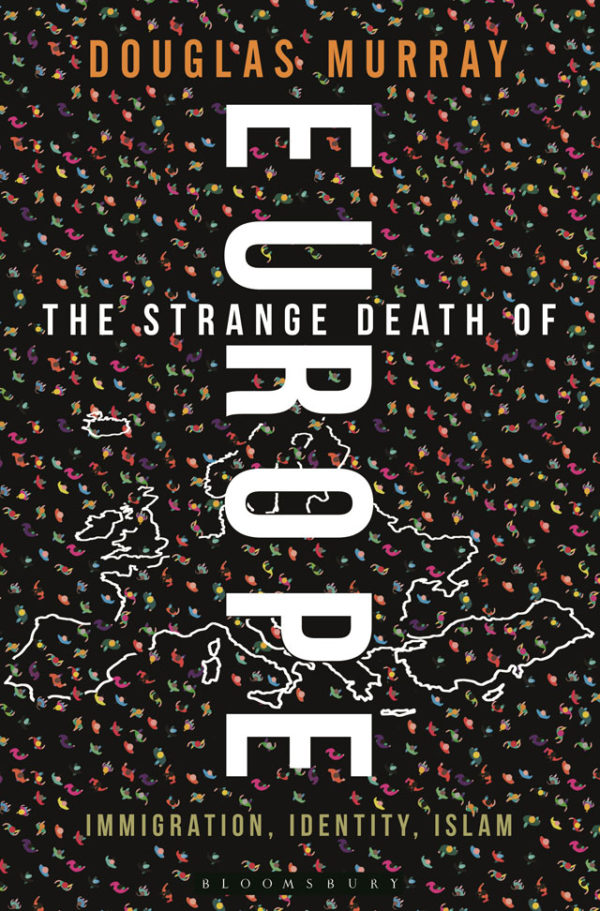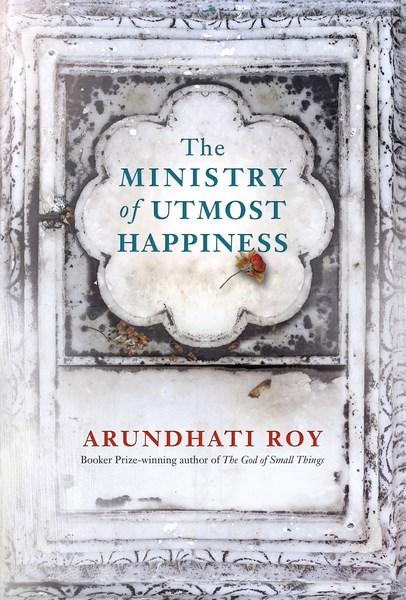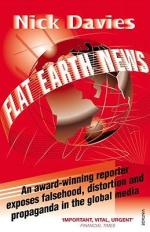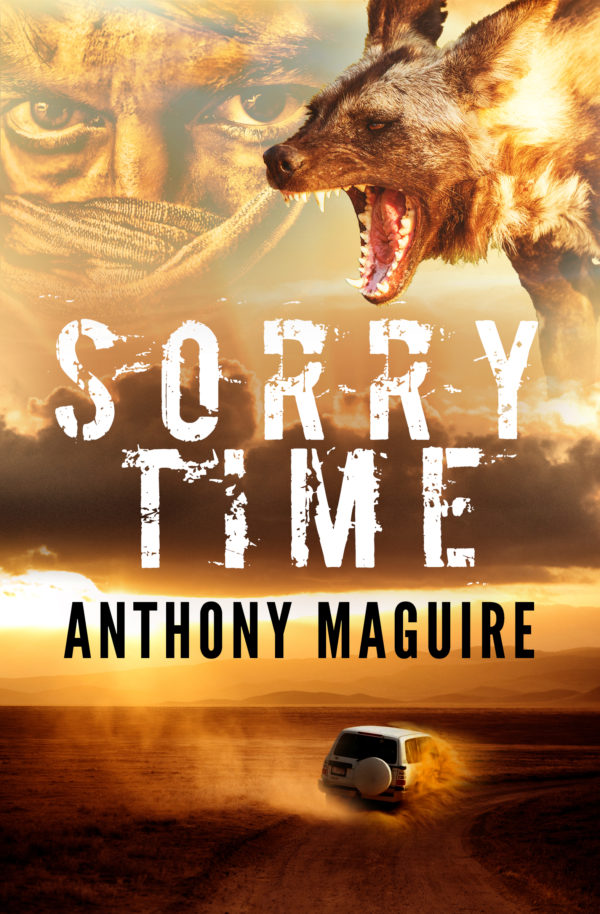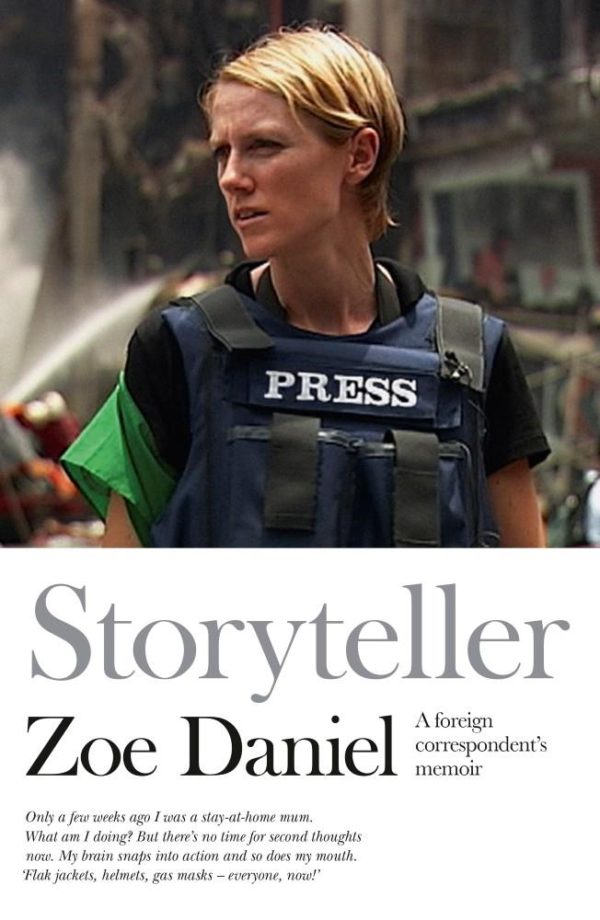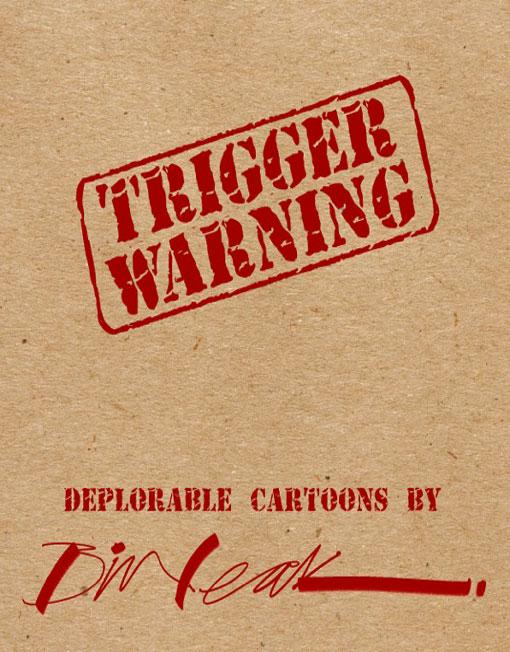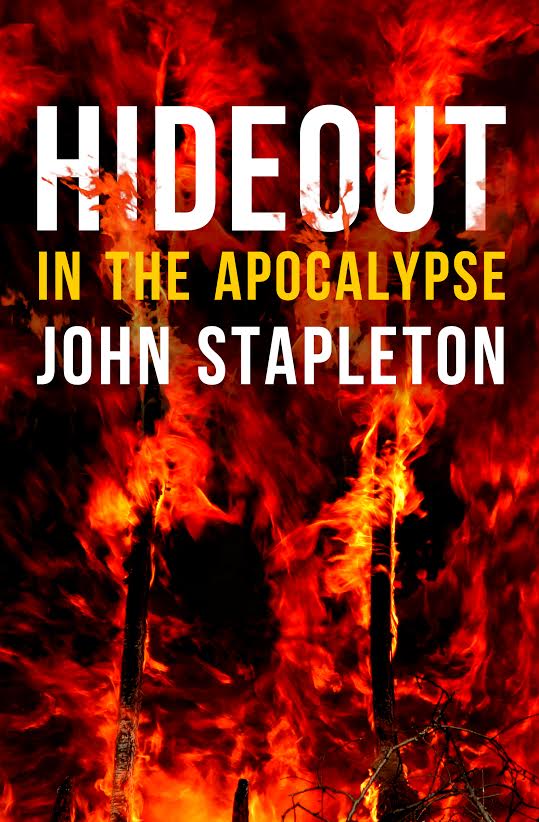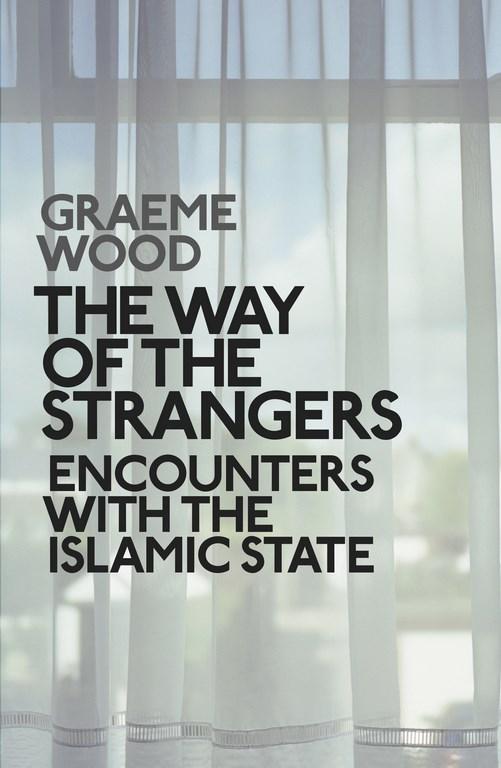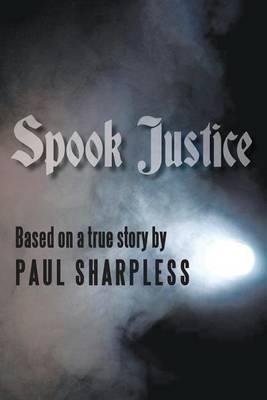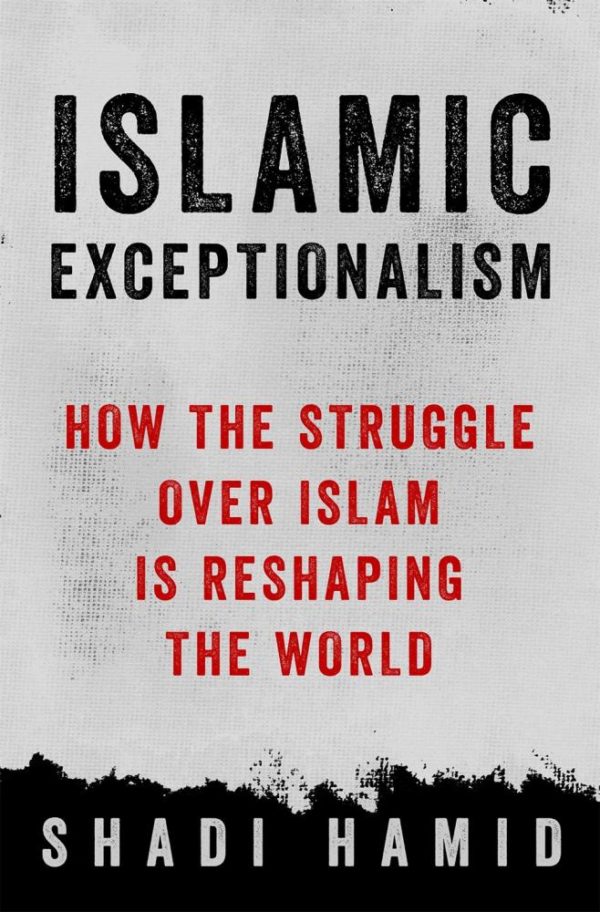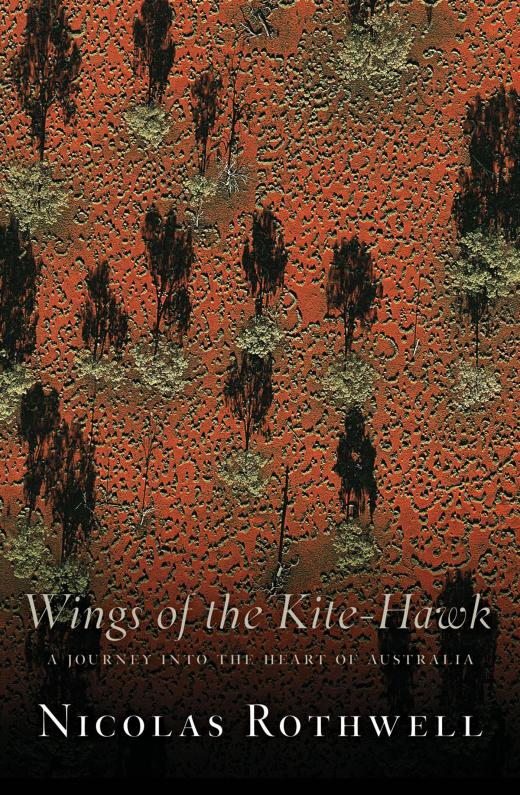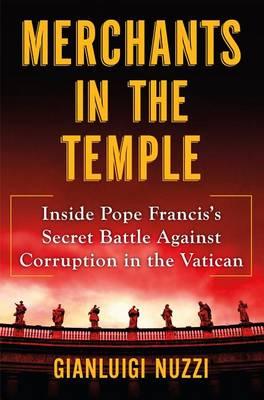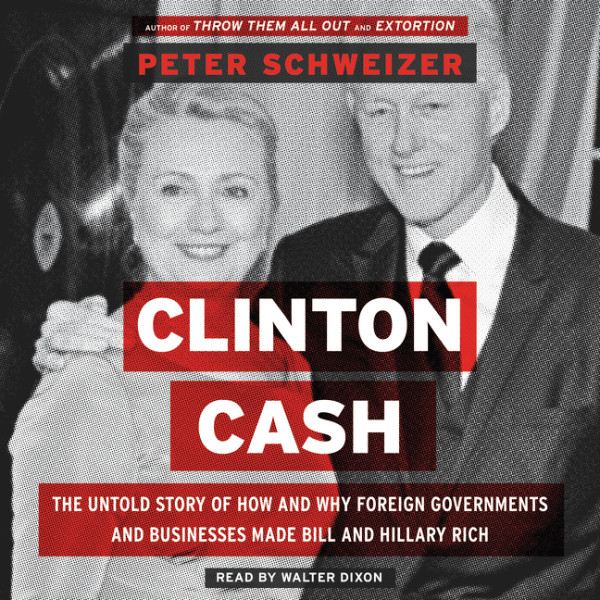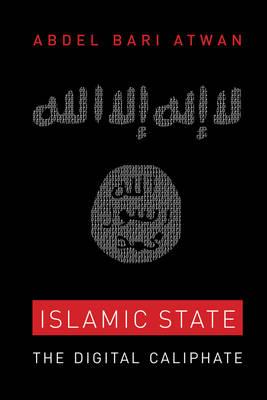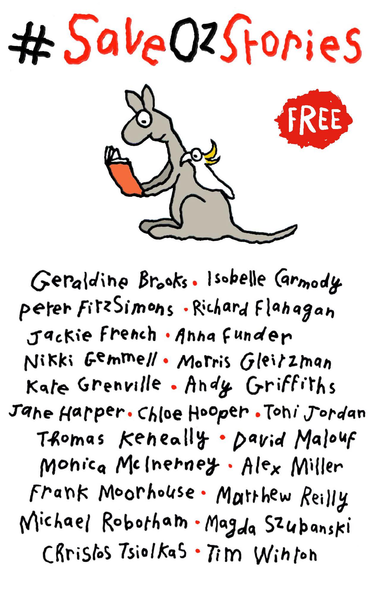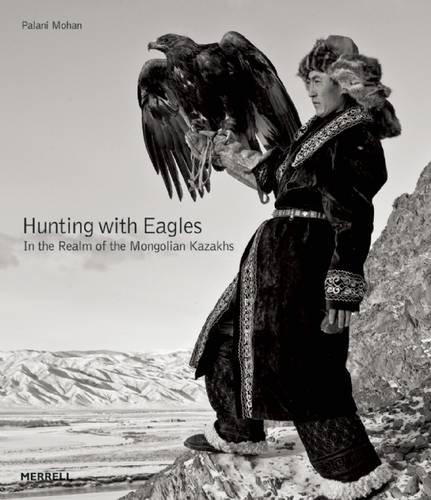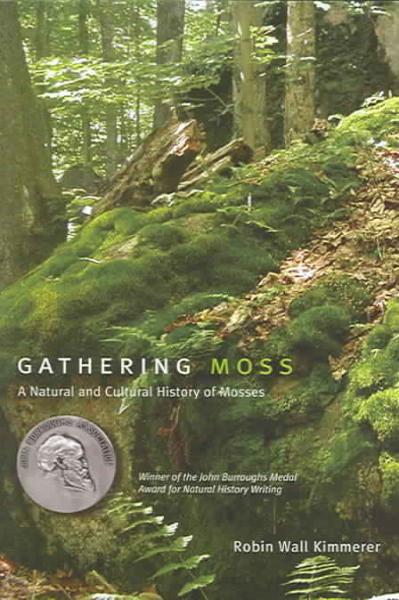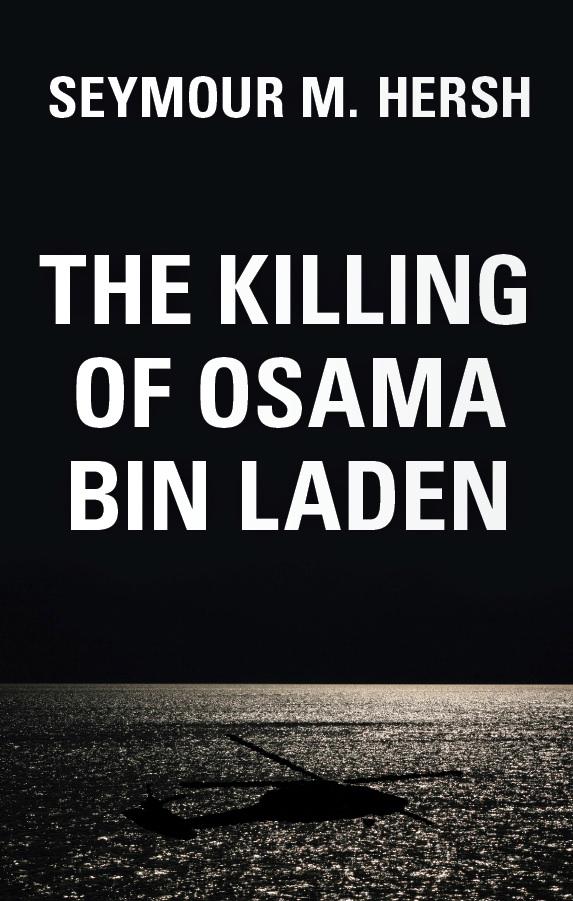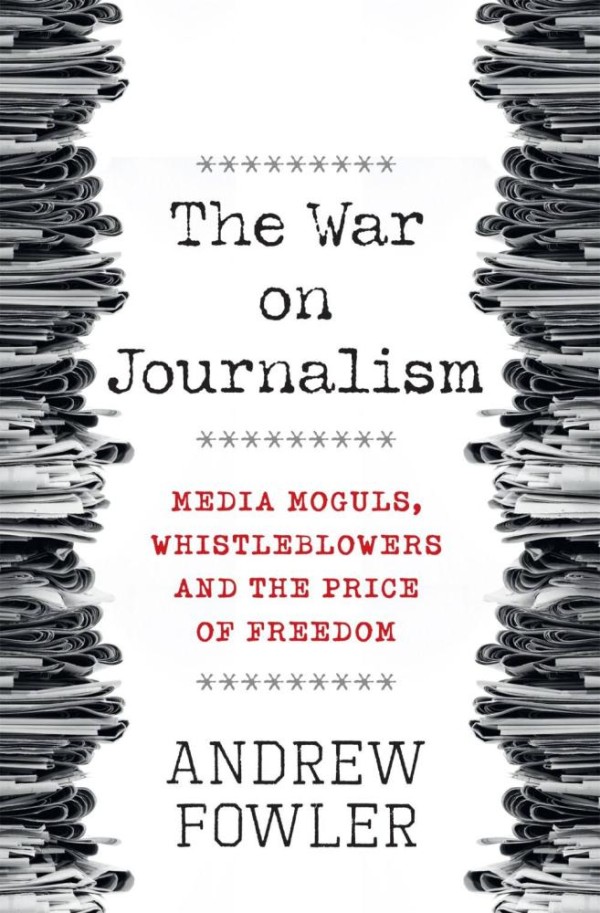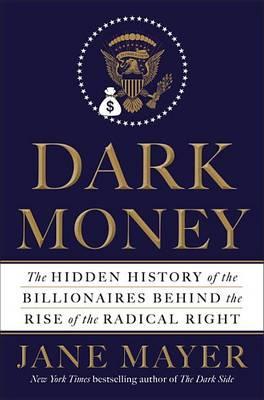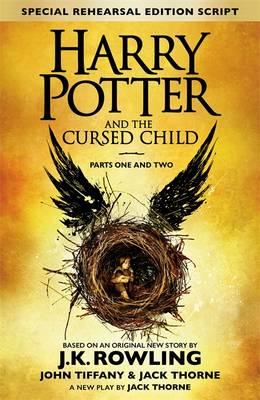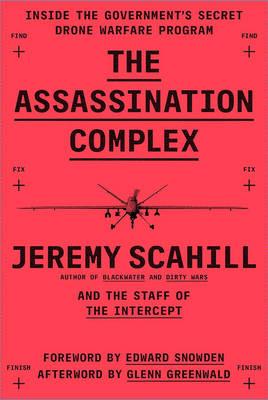Tag A Sense of Place Publishing
There is nothing in the colliding worlds of science, literature and art better than Maria Popova’s magnificent Brain Pickings. Here she is meditating on her beloved Janna Levin and the book A Madman Dreams of Turing Machines: If it is true — and true it is — that creativity blooms when seemingly unrelated ideas are cross-pollinated into something novel, then its most fecund ground is an environment where minds of comparable caliber but divergent obsession come together and swirl their ideas into a common wellspring of genius. There is hardly more concrete a testament to this principle than the Vienna Circle — the collective of scientists, philosophers, and novelists, who met in Europe in the first decades of the twentieth century and shaped modern culture by bringing art and science into intimate, fertile contact. But in the 1930s, as they demolished the boundaries between these disciplines, the Vienna Circle also exposed the limits of logic as a sensemaking mechanism for the nature of reality, limitation being perhaps as necessary to creativity as freedom of thought.
Facts of the world are sealed in minds. People wear a facade. All of reality goes on behind their eyes, and there lie secret plans and hidden agendas. A tar of false motives and intentions. Truth mauled. Because the past does not exist except as a threadbare fragment in the weaker minds of the many.
The Wave in the Mind: Talks and Essays on the Writer, the Reader, and the Imagination, by one of the modern era’s most significant and most beautiful of all writers, Ursula K. Le Guin, displays her at her very best; and to seek the “best” in an altogether spectacular body of work seems almost antithetical — she blends anthropology, social psychology, and sheer literary artistry to explore complex, often difficult subjects with remarkable grace.
Here is an extract from La Rose, winner of the National Book Critics Circle Award in Fiction and hailed as a literary masterwork. Author Louise Erdrich is the bestselling author of the National Book Award-winning The Round House and the Pulitzer Prize nominee The Plague of Doves.
North Dakota, late summer, 1999:
Landreaux had kept track of the buck all summer, waiting to take it, fat, until just after the corn was harvested. As always, he’d give a portion to Ravich. The buck had regular habits and had grown comfortable on its path. It would wait and watch through midafternoon. Then would venture out before dusk, crossing the reservation line to browse the margins of Ravich’s fields. Now it came, stepping down the path, pausing to take scent. Landreaux was downwind. The buck turned to peer out at Ravich’s cornfield, giving Landreaux a perfect shot. He was extremely adept, had started hunting small game with his grandfather at the age of seven. Landreaux took the shot with fluid confidence. When the buck popped away he realized he’d hit something else—there had been a blur the moment he squeezed the trigger. Only when he walked forward to investigate and looked down did he understand that he had killed his neighbor’s son.
A history of the CIA is a history of one debacle after another. The organisation murdered, manipulated and mismanaged its way across the globe for decades, and a reading of this utterly fascinating book goes considerably to understanding why America’s international standing is so poor. The senior management of the CIA lied to presidents, lied to the public, and lied to their own personnel. Australia’s intelligence services have long been closely associated with their American counterparts.
Extracts from Legacy of Ashes: The History of the CIA, by Pulitzer Prize winning author Tim Weiner:
NIXON’S CONTEMPT:
Get rid of the clown’s, the president kept commanding. What use are they? They’ve got 40,000 people over there reading newspapers.
The US is spending $6 billion dollars per year on intelligence and deserve to get a lot more than it is getting.
Since Nixon’s days, the budget has ballooned. Now spy agencies, including the CIA and the NSA, are getting more than $52 billion and military intelligence another $23 billion, according to published estimates. Some sources of income are believed to be concealed.
The second world — the world of literature — offered me, besides the pleasures of form, the sustentation of empathy (the first step of what Keats called negative capability) and I ran for it. I relaxed in it. I stood willingly and gladly in the characters of everything — other people, trees, clouds. And this is what I learned: that the world’s otherness is antidote to confusion, that standing within this otherness — the beauty and the mystery of the world, out in the fields or deep inside books — can re-dignify the worst-stung heart.
I learned to build bookshelves and brought books to my room, gathering them around me thickly. I read by day and into the night. I thought about perfectibility, and deism, and adjectives, and clouds, and the foxes. I locked my door, from the inside, and leaped from the roof and went to the woods, by day or darkness.
I read my books with diligence, and mounting skill, and gathering certainty. I read the way a person might swim, to save his or her life. I wrote that way too.
One of the reasons why the Islamisization of the West has taken such rapid hold has been mistaken social policies of the past, creating a fractured, uninclusive and uncaring culture, the so-called Age of Loneliness. The War on Drugs has been exactly one of those policies, demonizing and marginalizing entire segments of society while leaving the streets desolate and unsafe. As Chasing The Scream so amply demonstrates, the citizens of happy, industrious, socially inclusive cultures do not take drugs; at least not in ways which cause major problems to the individual or to the community. It is only in the fractured and disengaged cultures so characteristic of the West that the ice epidemic, for example, has been able to take such a terrible toll; on individuals and on the society as a whole, destroying the lives of individuals and and turning entire neighborhoods into war zones. January 2015 marked 100 years since drugs were first banned in the United States. In Chasing The Scream: The First and Last Days of the War on Drugs, highly accomplished journalist Johann Hari finds out why they were criminalized, how this is causing a disaster today and what happens when you choose a radically different path. His discoveries are told entirely through the startling and moving stories of real people – from a transsexual crack dealer in Brooklyn, to a Hungarian Holocaust survivor and scientist who discovered the real causes of addiction; that it lies in the sickness of the society, not in moral failings of the individual.
Douglas Murray in his own words: I was already writing about the migration issues occasionally. During the height of the migration crisis in 2015 I was reporting on bits of it and I got frustrated about not being able to explain the whole story because the facts and the emotions they provoke are fantastically complex. None of it is simple or easy. And I suppose like a lot of us who write, you get frustrated trying to do it in one or two thousand words in an article.
I was a long way from home in the Far East. And I had this realisation I had to write a book about the whole thing as I saw it. I find it the most fascinating subject of our time as well as the most troubling. And also being an inveterate walker into places where more sensible people fear to tread, all the difficult bits seemed to me to be the things that need to be thought about and written about and discussed. And I wanted to be able to do that at length.
At last, the author of that masterful short novel The God of Small Things, Arundhati Roy, has written a new book, The Ministry of Utmost Happiness.
Here is an extract:
Where do old birds go to die?
She lived in the graveyard like a tree. At dawn she saw the crows off and welcomed the bats home. At dusk she did the opposite. Between shifts she conferred with the ghosts of vultures that loomed in her high branches. She felt the gentle grip of their talons like an ache in an amputated limb. She gathered they weren’t altogether unhappy at having excused themselves and exited from the story.
When she first moved in, she endured months of casual cruelty like a tree would – without flinching. She didn’t turn to see which small boy had thrown a stone at her, didn’t crane her neck to read the insults scratched into her bark. When people called her names – clown without a circus, queen without a palace – she let the hurt blow through her branches like a breeze and used the music of her rustling leaves as balm to ease the pain.
Catch the book Tina and the Bear by exciting new travel writer Paul Emery. If he doesn’t manage to kill himself on some wild adventure in some remote part of the world, he has a very promising career ahead of him.
EXTRACT:
I came to rest at the head of a dirt track, my GPS said “Go left, go down the trail, you know you want to”.
So left I went, leaving behind the very rare Siberian commodity of smooth asphalt. I was close to completing the day’s ride of nearly eight hundred kilometers and I was tired, eyes drawing closed and the cold rang from the inside out making my muscles tense and my spine ache.
The dirt track was about twenty feet wide, hedged by small pine, the road was made of mud but it seemed fairly dry as far as I could see with nothing worse than what I had covered since leaving Vladivostok. I was in the zone and gave no thought to the idea that this was the wrong track and that a brand new road, all smooth and paved sat a kilometer round the bend that led down into Svobodny, the town where I’d be staying that night.
For those of us who once loved newspapers, and despair at the current state of the media, Flat Earth News is at once insightful, fascinating, and, of course, utterly dispiriting.
When award-winning journalist Nick Davies decided to break Fleet Street’s unwritten rule by investigating his own colleagues, he found that the business of reporting the truth had been slowly subverted by the mass production of ignorance.
He wrote: “Original, truth-telling journalism survives at the margins and commonly tends to be overwhelmed by the consensus account, whether true or false. What we are looking at here is a global collapse of information-gathering and truth-telling. And that leaves us in a kind of knowledge chaos, where the very subject matter of global debate is shifted from the essential to the arbitrary; where government policy, cultural values, widespread assumptions, declarations of war and attempts at peace all turn out toe be poisoned by distortion; where ignorance is accepted as knowledge and falsehood is accepted as truth.”
A Sense of Place Publishing is proud to announce the arrival of Sorry Time, a new Australian thriller by Anthony Maguire. With action from start to finish, the story straddles the unforgiving landscapes of Central Australia, the night hubs of Sydney and Indiana Jones-esque locations in Turkey. The book, already attracting good reviews, has just become available in Kindle and will be out in paperback shortly.
Only a few weeks ago I was a stay-at-home mum. What am I doing? But there was no time for second thoughts now. My brain snaps into action and so does my mouth. “Flak jackets, helmets, gas masks – everyone, now!” Zoe Daniel is now the Australian Broadcasting Corporation’s Washington correspondent, covering the US election. In Storyteller she tells of her years based in Bangkok with her husband and young family reporting on nine countries across Southeast Asia, filing copy and stories for TV, radio, online and social media. She was the Africa correspondent from 2005 until 2007 and spent 2009 covering the Khmer Rouge war crimes trials from Phnom Penh in Cambodia. Zoe’s frank and brave memoir, Storyteller, deals with the effects of her work, with its stresses and its constant travel, on her marriage, with the physical and psychological effects of a dangerous, confronting job, and the difficulty of slipping back into her ‘regular’ life after witnessing deeply disturbing events. She says: “The work can be logistically challenging and often horribly sad. Yet while there are lots of reasons not to do it, it’s important that those people are given a voice.”
Buy Now
Two days after giving this speech Australia’s greatest provocateur, cartoonist Bill Leak, died suddenly of an alleged heart attack. With freedom of speech in Australia already under savage attack, his passing is a great loss for the country. Sometimes called racist, even homophobic, he was none of these things. He was exactly where he should be, on the splinter lines of a fracturing country. A superb artist, magnificent draftsman and an indefatigable eye for all that is going so badly wrong in the Great Southern Land, he will be greatly missed.
This is his final speech: Ladies and gentlemen, I know it’s International Women’s Day, so first I must apologise for not being a woman. It’s particularly regrettable that I’m not a glamorous Sudanese-Egyptian-Australian woman who wears a hijab promoting a book about what it’s like being a glamorous Sudanese-Egyptian-Australian woman who wears a hijab. If I was, this wouldn’t be the only event I’ve got lined up on my non-government-funded whirlwind Trigger Warning awareness-raising tour.
Hideout in the Apocalypse is about surveillance and the crushing of Australia’s larrikin culture.
In the last two years the Abbott/Turnbull government has prosecuted the greatest assault on freedom on freedom of speech in the nation’s history.
The government knew from international research that when it introduced the panopticon, universal surveillance, into Australia it would have a chilling effect on the culture. When people know they are being watched, they behave differently. Dissent is stifled, conformity becomes the norm. This is the so-called chilling effect.
Forced to use novelistic techniques to tell a fantastical story, in his latest book Hideout from the Apocalypse veteran reporter John Stapleton confirms the old adage, truth is stranger than fiction.
His essential theme: a place which should have been safe from an impending apocalypse, the quagmire of religious wars enveloping the Middle East, is not safe at all.
“Australia is a democracy in name only,” says John Stapleton. “The war on terror has become a war on the people. It has justified an enormous expansion of state power. Ideas are contagious, and the Abbott/Turnbull government is afraid of them.
The author of the groundbreaking Atlantic cover story What ISIS Really Wants, a piece which combined excellent research skills with superb journalism and transformed the debate over Islamic State, has now written arguably the best ever account of the strategy, psychology, and theology driving the Islamic State. Graeme Wood is one of the world’s most intellectually gifted journalists. Tens of thousands of men and women have left comfortable, privileged lives to join the Islamic State and kill for it. To them, its violence is beautiful and holy, and the caliphate a fulfillment of prophecy and the only place on earth where they can live and die as Muslims. The Way of the Strangers is an intimate journey into the minds of the Islamic State’s true believers. From the streets of Cairo to the mosques of London to the cafes of Melbourne, Graeme Wood interviews supporters, recruiters, and sympathisers of the group to produce this beautifully written, must-read book.
Very few books have even dared to mention the clandestine and deeply disturbing nature of Australia’s ultra-secretive national security organisations. Your worst dreams may just be true. Forty-six years after her father suddenly disappears, Australian intelligence analyst Anthea Tonelli lies in a bed at Balmoral Military Hospital, thinking of the many colossal mistakes her military and intelligence agencies had made over the years. Stricken with cancer, Anthea is on the verge of losing everything – her marriage, her home, and even her career. Anthea is battling to survive in a corrupt world where her government and judiciary often conspire, and together, hide unbelievable atrocities. Worse yet, she is being manipulated by her husband, Andrew, who has but one wish-to destroy her. But when Anthea discovers hundreds of young intelligence recruits have been tortured and murdered by the Australian military and intelligence agencies, she is devastated beyond belief. Suddenly the beautiful country she has always known has become a place where deception, lies, disappearances, collusion, secret treaties, illicit pacts, illegal billion dollar deals, and organized government crime not only live, but thrive. Now Anthea must decide whom she can trust, before it is too late. Based on a true story researched for over twenty years, Spook Justice examines just how far corruption will go.
With the rise of ISIS and a growing terrorist threat in the West, unprecedented attention has focused on Islam, which despite being the world’s fastest growing religion, is also one of the most misunderstood. In his new book “Islamic Exceptionalism: How the Struggle over Islam is Reshaping the World” Senior Fellow with the Brookings Institute Shadi Hamid offers a novel and provocative argument on how Islam is, in fact, “exceptional” in how it relates to politics, with profound implications for how we understand the future of the Middle East. Hamid argues for a new understanding of how Islam and Islamism shape politics by examining different modes of reckoning with the problem of religion and state, including the terrifying—and alarmingly successful—example of ISIS. With unprecedented access to Islamist activists and leaders across the region, Hamid offers a panoramic and ambitious interpretation of the region’s descent into violence. Islamic Exceptionalism is a vital contribution to our understanding of Islam’s past and present, and its outsized role in modern politics. We don’t have to like it, but we have to understand it – because Islam, as a religion and as an idea, will continue to be a force that shapes not just the region, but the West as well in the decades to come.
Wings of the Kite-Hawk is a set of linked journeys into the Australian landscape: its past and its present, its people and its half-remembered secrets. In each chapter, Nicolas Rothwell takes a precursor and follows him. His guides include famous explorers from the past – Leichhardt, Sturt, Strehlow and Giles – as well as artists, anthropologists, rodeo riders and even Hell’s Angels. Vivid characters weave in and out of the story, inspiring journeys through different states of heart and mind: love, loss, friendship, fear. This book, re-issued with a new introduction by renowned travel writer Pico Iyer and a new foreword by the author, is unlike any other written about inland Australia. As much fable as memoir, it resonates with strangeness and bitter-sweetness, with all the hidden patterns and suddenly revealed depths of life.
Citing emails, minutes of meetings, recorded private conversations and memos, Merchants in the Temple paints a picture of a Vatican bureaucracy entrenched in a culture of mismanagement, waste and secrecy. Pope Francis has repeatedly and publicly warned the Roman Curia against engaging in “intrigue, gossip, cliques, favouritism and partiality” and acting more like a royal court than an institution of service. Last Christmas he delivered an infamous dressing down of his closest collaborators, citing the “15 ailments of the Curia” that included living “hypocritical” double lives and suffering from “spiritual Alzheimer’s.” The book details how at a designated time each year, Catholic parishes worldwide take up a special collection known as St. Peter’s Pence, funneling tens of millions of dollars to the Vatican with the aim of aiding the poor and needy. According to confidential files obtained by leading Italian journalist Gianluigi Nuzzi, rather than going to aid the poor, most of the cash is used to pay salaries and plug deficits at the Holy See. There is a “black hole” in the St. Peter’s Pence fund, and only a small portion of the cash makes it to those who need it most. Rather, the book documents lavish spending habits, mismanagement and a lack of accountability suggest the offerings are emblematic of larger problems within the ancient city-state in Italy.
For eight years, Bill wasn’t paid to speak in Nigeria for his anti-AIDs projects. Once Hillary became Secretary of State, he got $700,000 for a single talk. In 2000, Bill and Hillary Clinton owed millions of dollars in legal debt. Since then, they’ve earned over $130 million. In Clinton Cash: The Untold Story of How and Why Foreign Governments and Business helped Make Bill and Hillary Rich. Best selling author Peter Schweizer lifts the lid on where the money came from.
Save Oz Stories is a collection of responses from some of the country’s most highly regarded writers, including David Malouf and Geraldine Brooks, to an Australian Productivity Commission Report which recommends changes to copyright and importation rules which will effectively destroy the $2.2 billion Australian book industry. It adds to a long list of attacks by the Abbott/Turnbull conservative governments on journalism, whistle blowers, actors, artists and writers; essentially on all independent thought and creativity in a once proud, freedom loving country. The totalitarian instincts of the current Australian government defy belief. Esteemed Australian writer Richard Flanagan, who won the Mann Booker Prize Winner for his powerful book Narrow Road to the Deep North, writes: The Abbott and now Turnbull Government’s record drips with a contempt for writers and writing that leaves me in despair. They want to thieve our past work, and, by ending parallel importation restrictions and territorial copyright, destroy any future for Australian writers. You have to ask if, at heart, this is not profoundly political, because the disenfranchisement of the imagination is ever the disempowerment of the individual. There is, after all, both a bitter irony and a profound connection in a government that would condemn the wretched of the earth as illiterate, while hard at work to rob its own people of their culture of words. This is a government that despises books and views with hostility the civilisation they represent. This government, which again, and again, has brought Australia only global shame with its follies of cowardice and cruelty has no right now to destroy such a good in our nation as this: the voice of our experience, the words of our people, the tongue of our hope—our culture of writing. The Australian book industry has united to make digital copies available for free download and paperback copies available for free at Australian bookshops.
Deep in the unforgiving wilds of far western Mongolia, the last remaining Kazakh eagle hunters harness a powerful force of nature. The burkitshi, as they are known in Kazakh, are proud men whose faces reveal the harshness of the beautifully barren landscape they call home. They have an extraordinary bond with the golden eagle, which to them represents the wind, the open space, the isolation and the freedom found at the edge of the world. Australian photographer Palani Mohan has spent years documenting the noble hunters, but says only 60 remain, and fears the ancient tradition could disappear within 20 years.
Attention without feeling is only a report: “Life exists only because of a myriad of synchronicities that bring us to this particular place at this particular moment. In return for such a gift, the only sane response is to glitter in reply. Knowing the fractal geometry of an individual snowflake makes the winter landscape even more of a marvel. Knowing the mosses enriches our knowing of the world. Mosses and other small beings issue an invitation to dwell for a time right at the limits of ordinary perception. All it requires of us is attentiveness. Look in a certain way and a whole new world can be revealed. Learning to see mosses is more like listening than looking. A cursory glance will not do it. Starting to hear a faraway voice or catch a nuance in the quiet subtext of a conversation requires attentiveness, a filtering of all the noise, to catch the music. Mosses are not elevator music; they are the intertwined threads of a Beethoven quartet.” So writes one of the world’s leading botanists, Robin Wall Kimmerer, in her masterwork Gathering Moss: A Natural and Cultural History of Mosses — an extraordinary celebration of smallness and the grandeur of life, as humble yet surprisingly magical as its subject.
Keep an eye out for the upcoming book Children of the State by Peter van de Voorde, to be published by A Sense of Place Publishing.
This book is an electrifying investigation of White House lies about the assassination of Osama bin Laden . In 2011, a group of Navy SEALS stormed an enclosure in the Pakistani city of Abbotabad and killed Osama Bin Laden, the man the United States had been chasing since before the devastating attacks of 9/11. The news did much to boost Obama’s first term and played a major part in his re-election victory in the following year. Except the story of that night that was presented to the world was a lie, and the evidence of what actually went on has been covered up. At the same time, the true story of the US’s involvement in the Syrian civil wars has been conducted behind a diplomatic curtain. The White House has turned a blind eye to Turkey’s involvement in stirring up the conflict. Meanwhile, open brutality and ruthless subterfuge-such as the Sarin gas attack on Damascus-has been allowed to go on unpunished. As master investigative journalist Seymour Hersh shows in this explosive book, this was just one of many lies that the world’s leaders now tell us with seeming impunity. How far do these lies go? And what are their purpose?
Racked by public distrust, cowed by government surveillance and powerful corporations, the mainstream media is in crisis. Newspapers which flourished for centuries and TV networks that once ruled the world are failing. Andrew Fowler’s The War on Journalism tells how the media helped write its own epitaph. Drawing on personal interviews and his background in investigative journalism, Ander Fowler traces the decline of the culture of truth bringing in his new book The War on Journalism: Media Moguls, Whistleblowers and the Price of Freedom. It’s a tale of sackings, cutbacks and self-censoring editors, deals, threats and government standover tactics. Alongside tabloids like the News of the World, notorious for phone hacking, giants like the BBC, Australia’s ABC, The Washington Post and The New York Times, The Guardian and Le Monde come under fire.
Why is America living in an age of profound economic inequality? Why have protections for employees been decimated? Why do hedge-fund billionaires pay a far lower tax rate than middle-class workers?
The conventional answer is that a popular uprising against big government led to the ascendancy of a broad-based conservative movement. But as Jane Mayer shows in this powerful, meticulously reported history, a network of exceedingly wealthy people with extreme libertarian views bankrolled a systematic, step-by-step plan to fundamentally alter the American political system. The network has brought together some of the richest people on the planet. Their core beliefs—that taxes are a form of tyranny; that government oversight of business is an assault on freedom—are sincerely held. But these beliefs also advance their personal and corporate interests: Many of their companies have run afoul of federal pollution, worker safety, securities, and tax laws
The latest smash hit from J.K. Rowling, the special script edition of the play Harry Potter and the Cursed Child. It is the eighth Story. Nineteen Years Later.
Buy Now
Read More…
On a beautiful, balmy evening in Cuba in 2007, David Hicks walked out of Guantanamo Bay, in that moment ceasing to be a detainee of the United States and regaining his rights as an Australian citizen. Watching on was the man who had fought for four long years for Hicks’s right to go home: Major Michael Mori. Having grown up as an all-American boy, Mori joined the US Marine Corps as an eighteen-year-old, determined to give his life order and to serve the country he held dear. After training and serving as a military lawyer, he accepted a position as a defence counsel for the military commissions set up in the wake of the 9/11 terrorist attacks. And then David Hicks’s case file landed on his desk.
From his first days as commander in chief, the drone has been President Barack Obama’s weapon of choice, used by the military and the CIA to hunt down and kill the people his administration has deemed — through secretive processes, without indictment or trial — worthy of execution. There has been intense focus on the technology of remote killing, but that often serves as a surrogate for what should be a broader examination of the state’s power over life and death. The cutting edge journalistic team at The Intercept expose the shocking dystopian powers the United States and President Obama in particular have so roundly abused. The Democratic president, they say, has gotten away with crimes and repressive policies that liberals never would have let a Republican carry out. In 2015 alone, the U.S. dropped at least 23,144 bombs on six Muslim-majority countries, many in which it has not officially declared war. Among the many revelations in the book is that during a five-month period in a U.S. program in northeastern Afghanistan called Operation Haymaker, almost 90 percent of people killed in drone strikes were not the intended targets.
